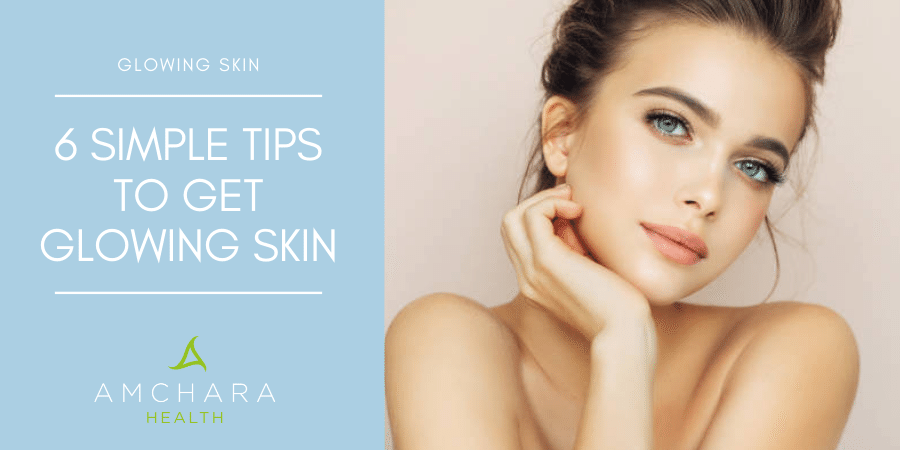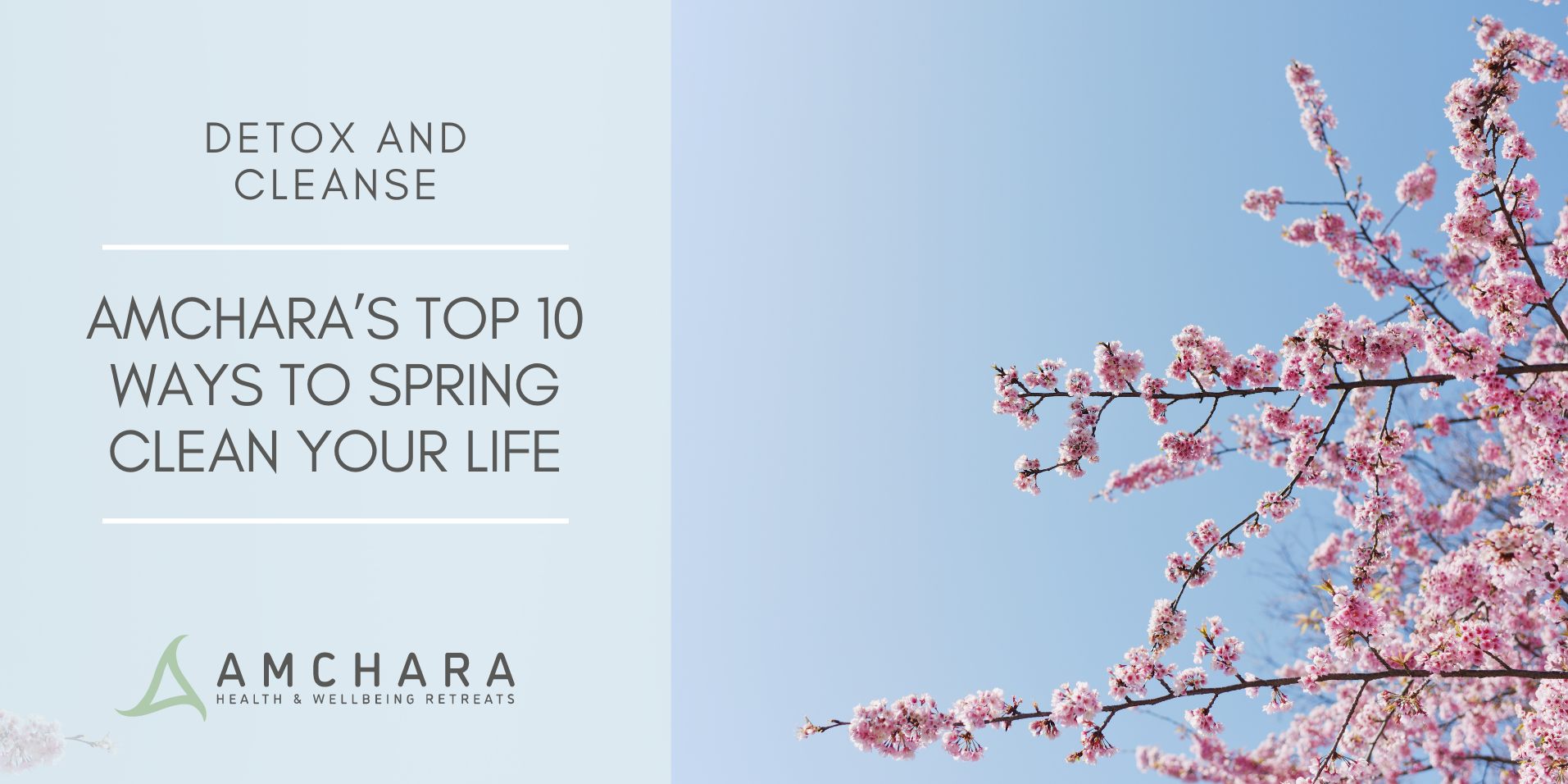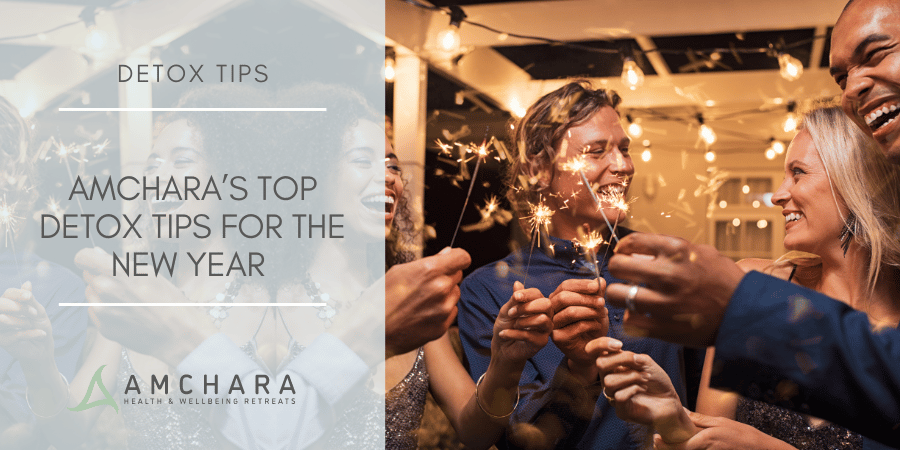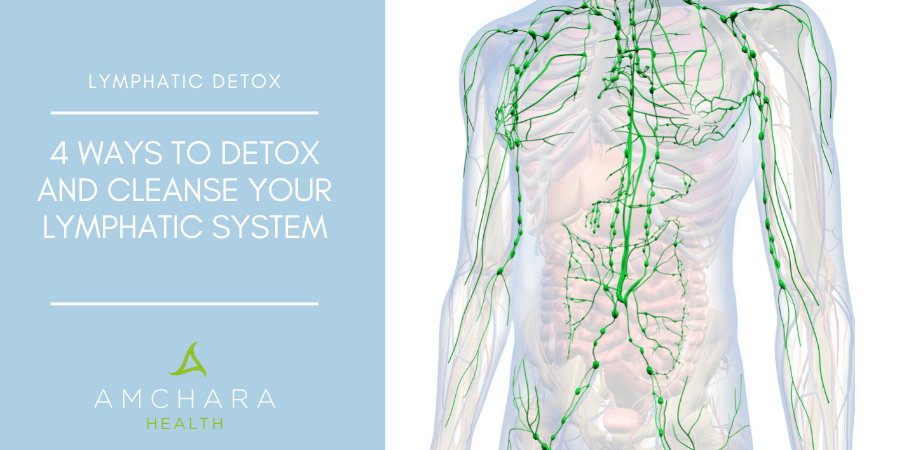Effective Tips For Glowing Skin That Really Work
It’s time to get serious about looking after your skin.
Our skin forms a barrier, designed to protect us, and some people consider our skin to be our third kidney – a key player in our body’s natural detoxification process.
It pays to love your skin.
Our mission is to provide you with both insightful information and evidence-based content, all orientated towards the Personalised Health approach, with actionable knowledge and tips to help you on your journey to optimal health.
Here is our round up of the 6 best things you can do to ensure you have glowing skin all year round.
#1. Avoid Chemicals
Our skin is the largest organ in the body – covering an incredible 20 square feet!
Although it’s often considered to be an impermeable coat, our skin is punctured by minute holes called pores, which allow gases, liquids and microscopic particles to pass through.
This means that what we put on our skin can pass through the pores and into our bloodstream from where it must be metabolised and excreted by the liver and kidneys.
We are more informed and concerned than ever about what we are putting in our bodies, but are we equally aware of what we are putting on them too?
Shower gel, hand wash, deodorant, shampoo and make-up are just some of the products that come into contact with your skin on a daily basis.
Many skin care products contain chemicals which can penetrate the skin or trigger allergic reactions.
The skin is made of three layers.
The outermost epidermis which forms a tough protective layer, the dermis, containing hair follicles and sweat glands, and the inner subcutaneous layer.
Some chemicals can soften the tough outer layer of the skin, weakening its protective layer.
Sodium Laurel Sulphate (SLS), a known skin irritant is found in many personal care products.
Research has found SLS can penetrate the skin in some cases as far as 6mm deep, and can be detected in the body seven days after a single application.
Parabens, synthetically produced chemicals which are used as preservatives, can act as endocrine disruptors by mimicking the action of our hormones and binding to hormone receptors, particularly those for the female hormone oestrogen.
Parabens have also been detected in breast tumours, although the jury is out as to whether they play a causative role.
However, what’s known is they can irritate the skin, leading to rashes or eczema.
Be mindful of the brands and products you are choosing; check the ingredients label and go for natural, organic and paraben-free where possible.
Your skin really will thank you.
#2. Watch out for the sun
As we age, our skin cells divide more slowly, and the skin’s inner layer, known as the dermis, begins to thin, meaning the skin becomes less elastic.
The skin becomes less able to hold on to moisture, as well as producing less oil.
A study published in Clinical, Cosmetic and Investigational Dermatology found that the sun accounts for 80% of skin ageing.
Interestingly, the researchers also found that just a 2% increase in sun damage ages a face by three years.
Long term sun exposure can alter the skin’s pigmentation, causing brown spots to develop.
Even in the winter months the sun’s rays are still strong, so be sure to wear a sunscreen with a high SPF all your round, particularly on your face.
Sunlight consists of both UVA and UVB rays.
UVA is the light with the longest wavelength. It is the most common wavelength light in sunlight and can penetrate deep into the skin, where it can damage collagen and lead to skin ageing.
UVB light can only penetrate as far as the skin’s epidermis layer, but it can contribute to the skin reddening seen in sunburn.
So make sure that the brand you choose has protection to guard against both UVB and UVA rays.
Protect your skin from an early age against harsh damage from the sun.
3. Exfoliate!
Over time, the pores in our skin can become clogged and blocked, making them expand and leading to blackheads and acne.
Exfoliation can remove the dry, dull, dead skin cells which can block our pores.
In turn this can encourage the new growth of fresh cells, speeding up skin renewal.
Exfoliation has the added bonus of increasing blood circulation.
Aim to exfoliate at least once or twice weekly.
Be wary of exfoliating products containing micro beads, as evidence has found these tiny beads, too small to be seen with the naked eye, are making their way into our water supply and into the food chain in the bodies of fish and crustaceans and even into sea salt.
Not only that, experts believe the micro beads can actually damage skin, causing tiny tears that can be breached by bacteria and lead to inflammation.
Happily, micro beads can now longer be used in cosmetics and personal care products in the UK, however they can still legally be sold in some EU member states.
A great natural way to exfoliate is to make a gentle exfoliating mask out of ingredients in your food cupboard.
Soak some oats in a little almond milk and add a mashed banana and a small amount of honey.
The oats have soothing and anti-inflammatory properties as well as being a gentle abrasive to gently remove the old skin cells.
4. Avoid caffeine
According to the British Coffee Association, we now drink around a staggering 95 million cups of coffee every day in the UK, and 2 billion cups are drunk worldwide every single day!
One of the problems with coffee and other caffeine containing drinks like black tea and cola is that they have a diuretic effect, meaning they cause us to lose water and become dehydrated.
Staying hydrated is incredibly important for your skin.
One of the symptoms of mild dehydration is dry, dull and lack-lustre skin which lacks elasticity.
The uppermost layer of the skin (comprised of cells called keratinocytes) forms a barrier to keep moisture in.
When we are dehydrated, the natural functioning of this barrier starts to be lost, meaning that external irritants can pass through the skin more readily and leading to increased skin sensitivity.
Dehydrated skin tends to produce more oil to compensate for the lack of water, so dehydration can also be connected with oily skin.
Your skin will love you if you cut down on coffee and other caffeinated drinks, while making sure you drink plenty of water.
Try drinking an extra glass of water for every caffeine drink you have, and drink coffee with food rather than on its own.
There are some great alternatives to caffeine drinks available nowadays.
Try Barley Cup, Rooibos tea, lemon and ginger tea, turmeric latte or even coconut water.
Don’t forget that alcohol can also contribute to dehydration.
Drinking plenty of water throughout the day will help keep your eliminatory systems working efficiently and your skin healthy.
5. Eat more skin-friendly foods
Don’t forget that the health of our skin is largely determined by what’s occurring within our body.
There are some amazing skin supporting foods you can include in your diet regularly.
Orange fruits and vegetables are packed with beta carotene: think carrots, mango, sweet potatoes, squash and peppers.
Beta carotene is a potent antioxidant, helping to neutralise free radical damage to the skin, and it is converted by the body to Vitamin A, which can assist with skin healing, skin cell renewal and turnover.
Almonds, sunflower seeds, hazelnuts and avocado contain high levels of vitamin E which protects against sun damage.
Vitamin C, found in fresh fruit and vegetables, is essential for the formation of our skin’s collagen, and selenium, high in Brazil nuts, plays a role in skin elasticity.
The skin also needs a good level of healthy fats, particularly omega-3 oils found in oily fish, flax seeds and pumpkin seeds.
These fats form an essential part of our cells’ membranes and help the skin hold onto water and take on nutrients, as well as helping to calm down inflammation which may otherwise lead to eczema.
Zinc is a mineral involved in skin repair and hormone balance – if our hormones are out of kilter, we will be prone to suffer from asthma.
Zinc is found in nuts and seeds, particularly pumpkin seeds.
Lycopene, found in tomatoes, pink grapefruit and papaya, has been found in a study by the Universities of Manchester and Salford to reduce skin reddening after exposure to UV light, as well as reducing resultant damage to the cells’ DNA.
6. Get some fresh air
Although overall air pollution in the UK is falling, according to data collected between 2013-15, more than 40 towns and cities recently exceeded WHO air pollution limits.
In London, air pollution reached the legal limit for the whole of 2018 less than a month into the new year.
Pollution is made up of millions of different airborne particles such as polycyclic aromatic hydrocarbons (PAHs) from diesel exhaust and cigarette smoke, volatile organic compounds (VOCs) in paint, varnish and industrial processes, and cigarette smoke, to name just a few.
Researchers at the University of Athens found that prolonged or repetitive exposure to pollutants can result in skin ageing and inflammatory conditions such as dermatitis, psoriasis and eczema.
It is thought that airborne pollutants can all interfere with the functioning of fats and proteins in our skin cells, as well as with our DNA.
In combination with UVA and UVB rays, pollutants can increase skin sun damage.
If you live in a city, it may be easier said than done to expose yourself to clean, fresh air, but it’s still possible to make the best of what you’ve got.
Visit your local park and go for a walk surrounded by greenery and space.
Try and get out of the city when you can; choose somewhere where you can get outdoors – on a beach, woodland or park area and breathe in the fresh country air.
By following these six simple tips, you will be rewarded by healthy, glowing skin from the inside out!
We’re dedicated to providing you with both insightful information and evidence-based content.
Did you find this article useful?
Do you have any tips that have helped your skin health?
We’d love to hear your thoughts, get in touch!
READ NEXT:
- Top Vitamins And Nutrients For Healthy Skin
- The Dangers of Too Much Sun
- Natural Chemical Free Sun Cream
- How Coffee Impacts on Your Body
- How Caffeine Impacts On The Adrenal Glands









